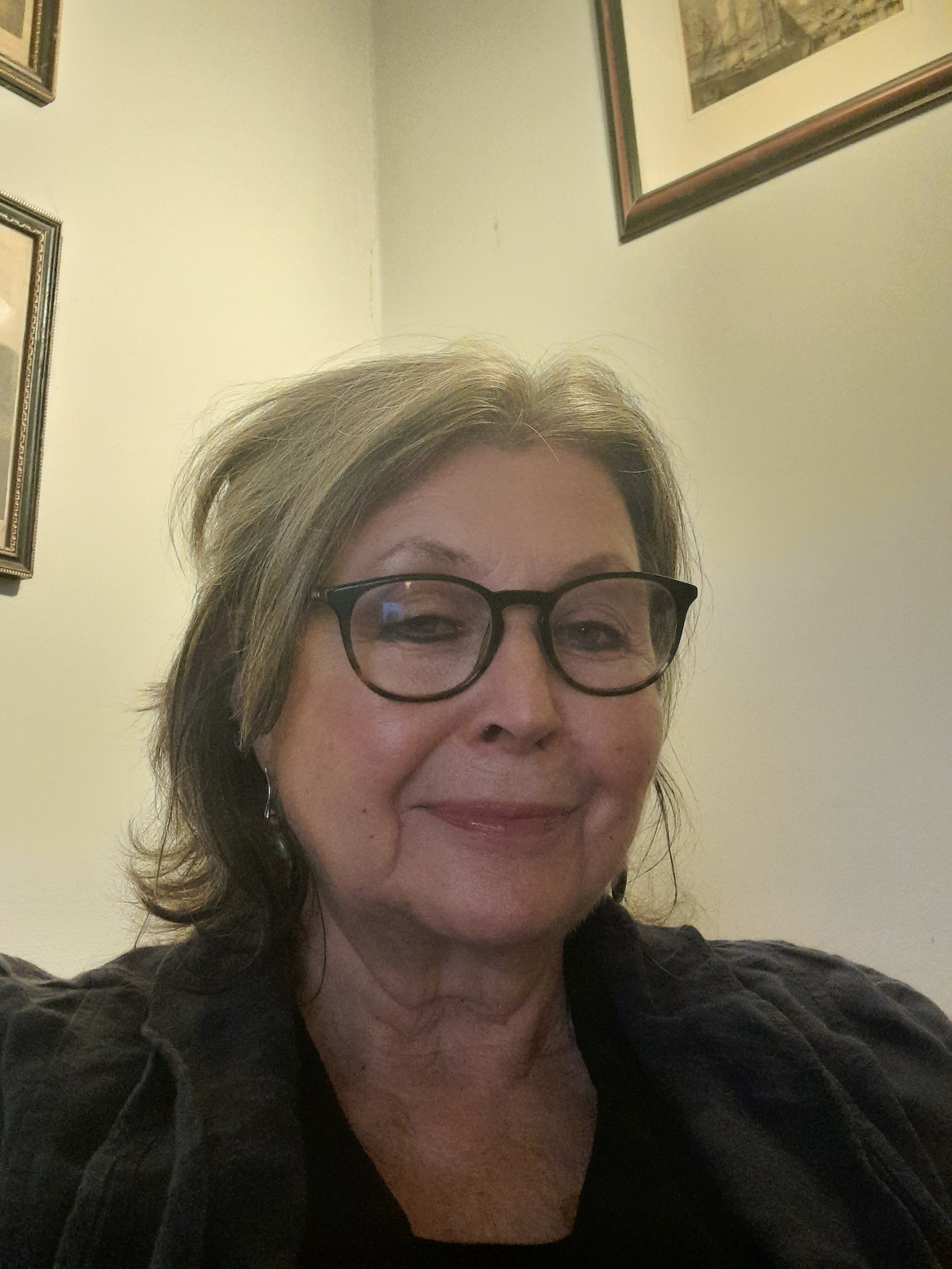An Interview with
Jenny Dunbar
Jenny'’s poem, “Waking” is Forthcoming in
Dulcet Literary magazine, vol. One, Issue No. 2
Interview by Alison Keiser,
Associate Editor, Dulcet Literary Magazine
In “Waking,” the line, “I am all my mornings, gathered in the turning,” encompasses a recurring theme of the loose boundary between memory and the self in your poetry. How do you see the passage of time influencing the current identity of the speaker in this poem? Additionally, You acutely describe the physical space of the speaker’s house in this poem. What relationship do you see between the physical and emotional worlds of your speaker in “Waking”?
As time passes, I often find connections with the past an increasingly resonant stimulus for my writing. These memories that become narrative incorporate both an emotional and physical quality which influence the mood of the written word. Recurrent themes in differing guises, stimulated by observing out of the blue events, listening to the half-caught phrase, landscape and juxtaposition of the extraordinary in the ordinary, often trigger a memory which elicits a narrative. As time passes maybe one finds it easier to recollect in tranquillity, allowing perspective to distance oneself from what was ‘too present.’ There is a definite relationship for me between the emotional and physical elements which shape and influence imagination. These are the building blocks one draws upon during the creative process. I have always been able to visualise and bring back the moment. I hope those elements which stimulate me evoke both a poignant and affirming reaction in the reader. I sometimes wonder whether these, ‘attachments,’ indicate an unspoken loss of innocence we all experience and try to recapture.
Congratulations on your debut novel, Sweet Earth. How does your experience with prose writing influence what your poetry becomes?
I think, for me, the two are very much entwined, happening almost automatically, where the poetic metre and cadence become a dominant feature. I sometimes make a piece of short prose into a poem, likewise poetry into prose. I am constantly ‘turning’ the words as I would work a piece of ceramic. Tea bowls being a case in point. One adapts the form, texturally and decoratively, sculpting towards a glide between the formal and informal, abstract and conventional.
I read and loved your ideas on the artist’s creative process, how it takes confidence and patience to rework a piece until your intention has been made clear. How do you know when a poem of yours is done?
I don’t. After editing, leaving, returning, re-editing, and repeating this process I eventually accept the piece and it, me. This still does not mean work is finished. One is always working towards.
You say your writing naturally developed out of your career in the creative arts, which includes your experience with voice and drama. What are the similarities and differences between the public act of performance and the private experience of writing? (references: Link & Link)
I am always sensitive to the contemplative process in writing and the importance of never underestimating the reader. Allowing the economy of language and the quality of words to speak for themselves is a thing one continues to aim for. In performance, an actor involves the audience by trusting the truth of vulnerability, and inviting the listener and observer in. Over-emphasis of gesture or word can be an obstacle to real communication.
Similarly, a writer ‘performs,’ by using what is unsaid but evident, thereby creating an emotional space for individual response and involvement. Creating the written word is a privileged and reflective way of voicing a narrative which one hopes will communicate on many levels.
Where do you most often find the inspiration to write in your daily life?
Since childhood I have listened and observed the narrative of the day and still do. My mother continued a daily monologue about people, places, and events, and I was often quietly in the company of family and friends as they recounted anecdotes and memories. Putting landscape and situations against these characters added to the experience. Often feeling safe, as a child in the domestic environment, standing among the tomato plants in my grandmother’s green house for example, were some of my first formative memories, as was the lady at the farm from whom we collected eggs. I was filled with a mixture of curiosity and fear as I watched her wrap each one in newspaper while she chatted. Her surroundings were alien to me, but her isolation was obvious. I observe and listen, find the absurd alluring in sad and funny ways, and spend a great deal of time thinking.
Read Jenny’s poem, “Waking” in dulcet Literary magazine, vol. One, Issue No. 2, coming this february.
Poetry
Jenny Dunbar Bio
Jenny Dunbar is a writer of poetry and prose, based in the UK. Her first specialism was in voice and performance, graduating from the Royal Central School of Speech and Drama. Writing has always been an important part of her life since childhood. Her work appears in literary journals and anthologies including, Vine Leaves Press, Capsule stories, Oye Drum, and Super Present. Sweet Earth, a debut novel, was published in 2014 followed by an anthology, Thoughts of Time, in 2016. Landscape, voices, and juxtaposition always inspire her. Jenny has previously been nominated for the Pushcart Prize and Best of the Net Poetry. Jenny continues to work on short fiction collections.
